|
Geant4
10.03.p01
|
|
Geant4
10.03.p01
|
#include <G4PolyPhiFace.hh>
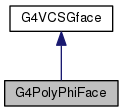
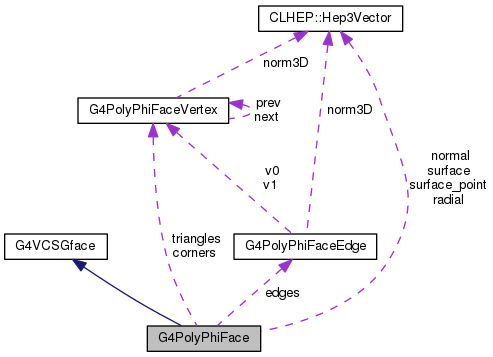
Definition at line 85 of file G4PolyPhiFace.hh.
| G4PolyPhiFace::G4PolyPhiFace | ( | const G4ReduciblePolygon * | rz, |
| G4double | phi, | ||
| G4double | deltaPhi, | ||
| G4double | phiOther | ||
| ) |
Definition at line 61 of file G4PolyPhiFace.cc.
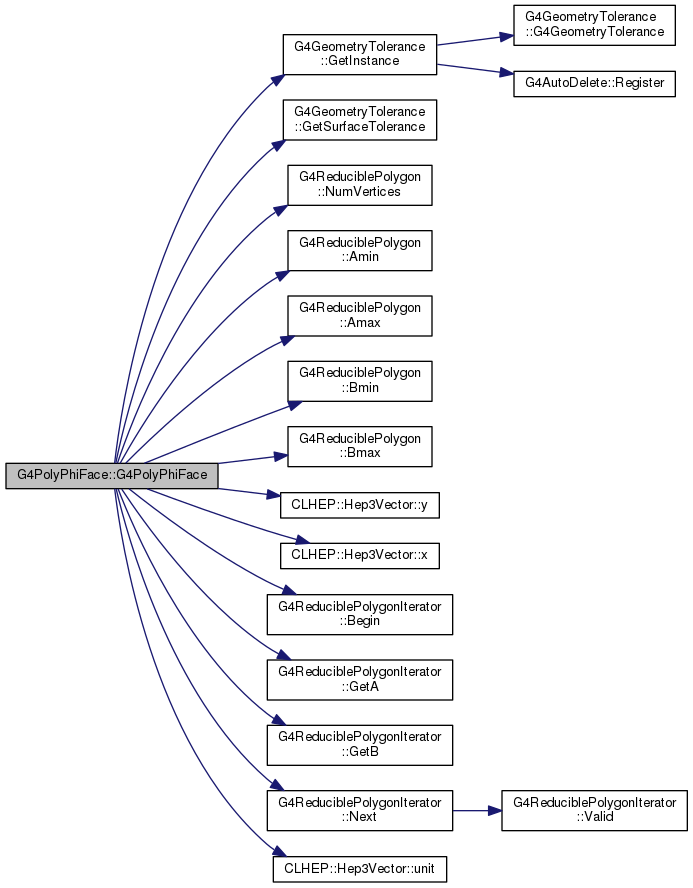
|
virtual |
Definition at line 301 of file G4PolyPhiFace.cc.
| G4PolyPhiFace::G4PolyPhiFace | ( | const G4PolyPhiFace & | source | ) |
| G4PolyPhiFace::G4PolyPhiFace | ( | __void__ & | ) |
Definition at line 291 of file G4PolyPhiFace.cc.
|
protected |
Definition at line 960 of file G4PolyPhiFace.cc.


|
protected |
Definition at line 1018 of file G4PolyPhiFace.cc.


|
virtual |
Implements G4VCSGface.
Definition at line 628 of file G4PolyPhiFace.cc.
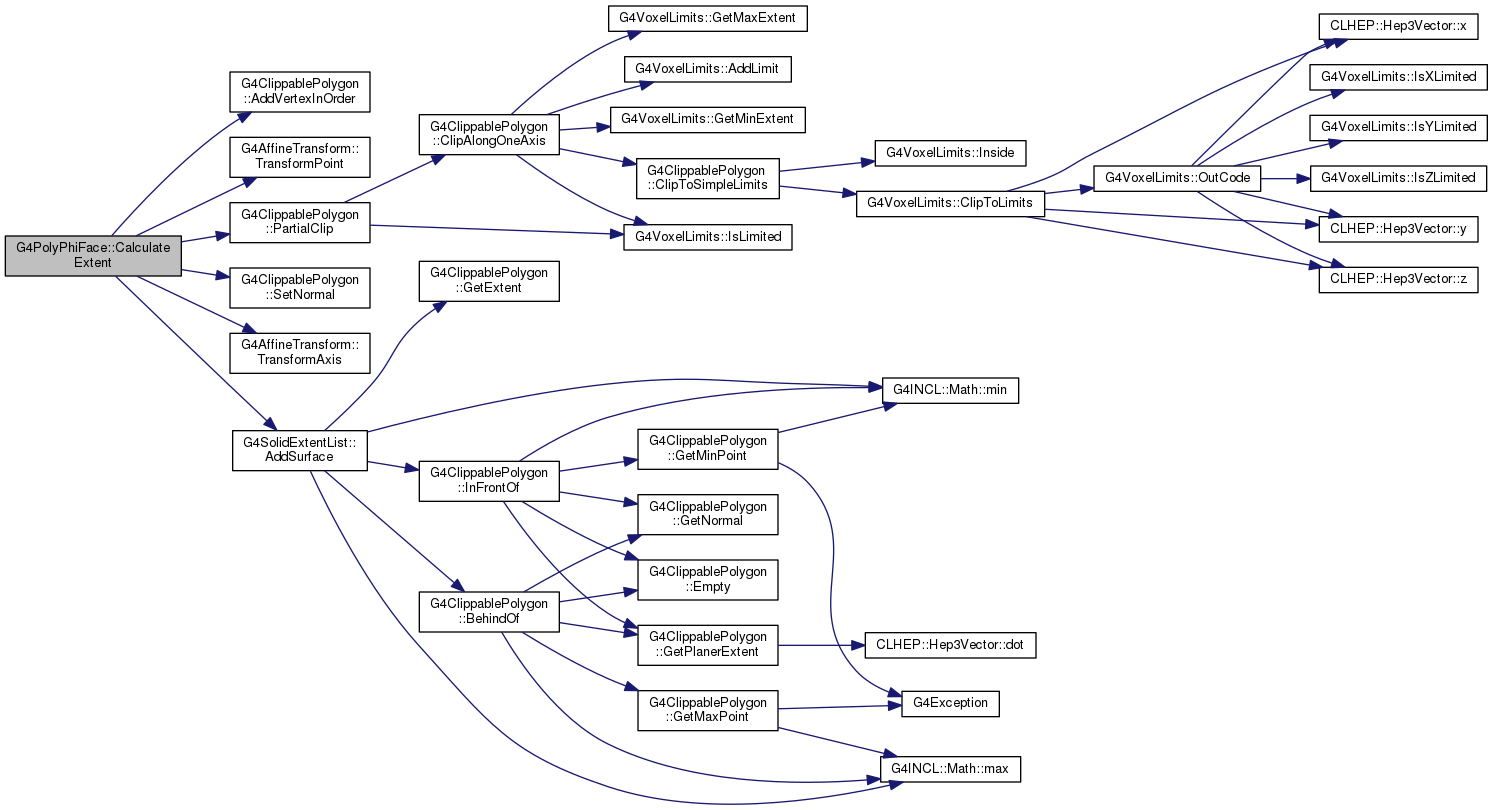
|
inlinevirtual |
Implements G4VCSGface.
|
protected |
Definition at line 991 of file G4PolyPhiFace.cc.


|
protected |
Definition at line 337 of file G4PolyPhiFace.cc.

Definition at line 272 of file G4PolyPhiFace.cc.

|
protected |
Definition at line 1118 of file G4PolyPhiFace.cc.


|
protected |
Definition at line 1057 of file G4PolyPhiFace.cc.


|
virtual |
Implements G4VCSGface.
Definition at line 445 of file G4PolyPhiFace.cc.

|
protected |
Definition at line 1127 of file G4PolyPhiFace.cc.


|
inlineprotected |

|
virtual |
Implements G4VCSGface.
Definition at line 606 of file G4PolyPhiFace.cc.
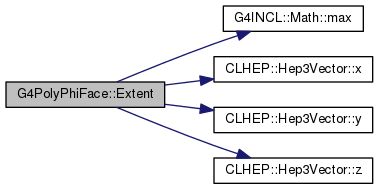
|
virtual |
Implements G4VCSGface.
Definition at line 947 of file G4PolyPhiFace.cc.

|
protected |
Definition at line 1091 of file G4PolyPhiFace.cc.


|
virtual |
Implements G4VCSGface.
Definition at line 489 of file G4PolyPhiFace.cc.
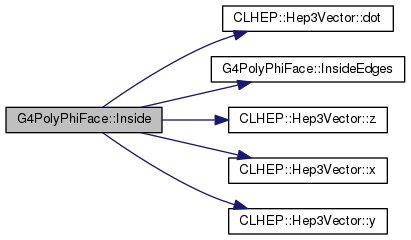
Definition at line 816 of file G4PolyPhiFace.cc.

|
protected |
Definition at line 838 of file G4PolyPhiFace.cc.
|
protected |
Definition at line 683 of file G4PolyPhiFace.cc.
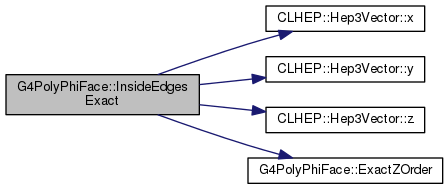

|
virtual |
Implements G4VCSGface.
Definition at line 388 of file G4PolyPhiFace.cc.


|
protected |
Definition at line 1038 of file G4PolyPhiFace.cc.

|
protected |
Definition at line 1002 of file G4PolyPhiFace.cc.


|
protected |
Definition at line 971 of file G4PolyPhiFace.cc.


|
protected |
Definition at line 981 of file G4PolyPhiFace.cc.


|
virtual |
Implements G4VCSGface.
Definition at line 563 of file G4PolyPhiFace.cc.
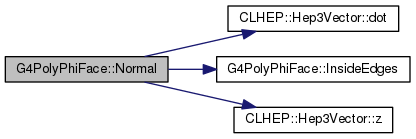
| G4PolyPhiFace & G4PolyPhiFace::operator= | ( | const G4PolyPhiFace & | source | ) |
|
virtual |
Implements G4VCSGface.
Definition at line 938 of file G4PolyPhiFace.cc.

| G4double G4PolyPhiFace::SurfaceTriangle | ( | G4ThreeVector | p1, |
| G4ThreeVector | p2, | ||
| G4ThreeVector | p3, | ||
| G4ThreeVector * | p4 | ||
| ) |
Definition at line 919 of file G4PolyPhiFace.cc.

|
protected |
Definition at line 1151 of file G4PolyPhiFace.cc.


|
protected |
Definition at line 231 of file G4PolyPhiFace.hh.
|
protected |
Definition at line 223 of file G4PolyPhiFace.hh.
|
protected |
Definition at line 222 of file G4PolyPhiFace.hh.
|
protected |
Definition at line 234 of file G4PolyPhiFace.hh.
|
protected |
Definition at line 233 of file G4PolyPhiFace.hh.
|
protected |
Definition at line 224 of file G4PolyPhiFace.hh.
|
protected |
Definition at line 221 of file G4PolyPhiFace.hh.
|
protected |
Definition at line 225 of file G4PolyPhiFace.hh.
|
protected |
Definition at line 229 of file G4PolyPhiFace.hh.
|
protected |
Definition at line 229 of file G4PolyPhiFace.hh.
|
protected |
Definition at line 226 of file G4PolyPhiFace.hh.
|
protected |
Definition at line 227 of file G4PolyPhiFace.hh.
|
protected |
Definition at line 235 of file G4PolyPhiFace.hh.
|
protected |
Definition at line 229 of file G4PolyPhiFace.hh.
|
protected |
Definition at line 229 of file G4PolyPhiFace.hh.